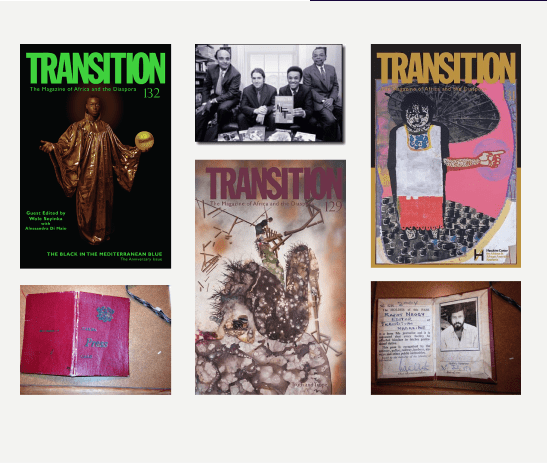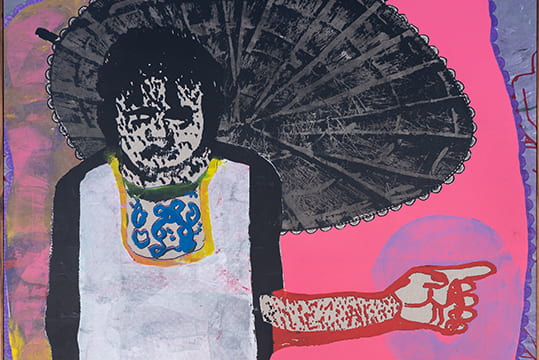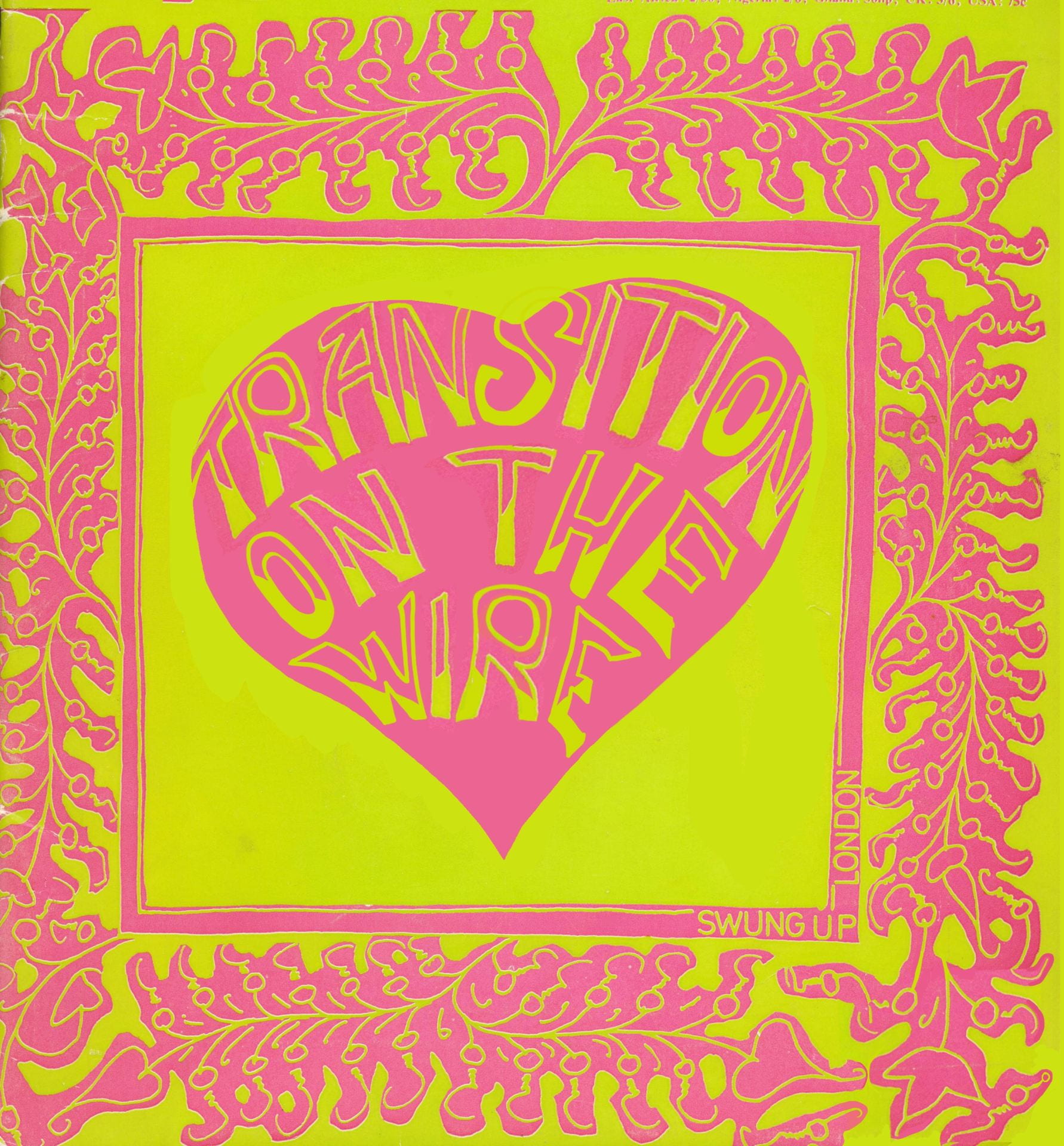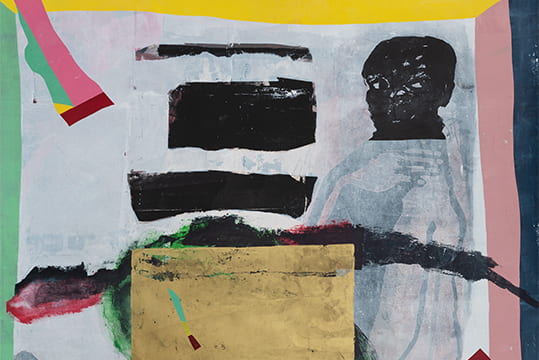
Current Issue
SUDAN
Our current issue clarifies the conflicts and crisis unfolding in Sudan and offers various personal histories that humanize and memorialize profound loss.

STAND WITH SUDAN
Join us at The Cambridge Main Public Library for a Teach-In and Benefit for Mutual Aid Sudan Coalition on February 12, 2026 from 6 p.m. to 8 p.m. Contributors to our current issue on Sudan, Fatin Abbas, Alex De Waal, Nisrin Elamin, and Alden Young, as well as members of the local Sudanese community, will speak and discuss the present-day conflict in Sudan, its roots, what stands to be lost, and how to move toward a lasting peace.
Free copies of the Sudan issue will be on hand.
Refreshments to follow.
Image Credit: Amel Bashier, Guardian, 2025. Acrylic and ink on canvas.
Rajat: A Profile in Artistic Courage
Raksha Vasudevan writes her Substack essay “Against Hope” about “one of East Africa’s most remarkable editors, daddy issues, and making meaning even without hope.” Rajat Neogy, the man who made Transition, is a study on how to behave under an oppressive regime. He “prided himself on being an ‘an irritant,’ a provocateur, a source of what he saw as necessary friction within and across political, intellectual and racial lines…In October 1968, Neogy was arrested on charges of sedition by President Obote. The jails were full of political prisoners but he could not commune with any of them. He spent five months in solitary confinement. The experience shattered him…’The most frightening thing about detention is its arbitrariness and its suddenness,’ Neogy wrote. “Like death, you think it only happens to other people.'” Read our own Substack for a series of “profiles in courage,” those contributors who fight fascism on and off our pages.


Artist Spotlight
Amel Bashier
Amel’s work accompanies Alex De Waal’s essay “Fictions of the Black Nile,” which explains the causes of the current genocide and the racial hierarchies in Sudan that have inflected the conflict. To see color paintings, along with her striking ink drawings, buy your own copy of T138 SUDAN.
Though the image to the right is entitled “The Kingdom,” it could just as easily be called “The Queendom.” The central figure in the image to the right is an oversized woman, who sits on a scale held up by two more female figures. With an owl to her left and a young plant growing out of her hand, she bespeaks balance and wisdom. Perhaps the women harken back to the Nubian queens, from whom Amel bashier is a direct descendant, Nubian language and culture very much kept alive in her family home. They also refer to the strong women who led the revolution that toppled the Bashir regime, bringing hope to the embattled country for some years.
Her paintings convey a “message of peace, reconciliation, and forgiveness for the crimes committed during Sudan’s bloody civil wars is conveyed throughout her work.” See more of this description in her profile at Addis Fine Art, where you can also take a glimpse at more images of her work.
In an interview with WomensLiteracySudan, she speaks of her work with black ink: “It’s true that I don’t have a tangible explanation for why black has taken over my work; perhaps it is the austerity and ascetic qualities of the color or perhaps I am seeking a form of serenity. ”

From the Archive
The Spirit of Dancehall: Embodying a New Nomos in Jamaica
In T125 Religion, published in 2017, Khytie K. Brown explores dancehall as a spiritual ritual that falls within the tradition of African indigenous practices–where “the sacred and profane can exist simultaneously.” (Brown recounts Kwame Coleman, a priest and dancer of the Cuban Palo Monte telling an audience at Harvard that the first time he was possessed by an orisa was while he was at a nightclub.)
More than an ethnographic study on a genre of dance, this essay casts dancehall as a politically subversive cultural sphere where the marginalized communities of the “garrison” (or inner city) can forge new expressions of sovereignty, identity, and belonging. With its sexually explicit lyrics that “leave nothing to the imagination” and the lewd acts and dances that accompany the music, dancehall rebels against Jamaica’s profoundly Christian culture, but also casually absorbs it. Brown begins her childhood experience of ecstatic Christian religious practice in Jamaica and deepens quickly into multi-faceted analysis. Jamaica may be known for the spiritual aspects of reggae, but dancehall as spiritual practice was neglected far too long before this essay appeared in our Religion issue.

Podcast
Transition on the Wire
Transition on the Wire is the monthly podcast of Transition Magazine, hosted by author Sarah Ladipo Manyika. In our latest podcast, Sarah sits down with Mónica Macías—daughter of Equatorial Guinea’s first president—to discuss her memoir, BLACK GIRL FROM PYONGYANG: In Search of My Identity. In recent episodes, Sarah interviews best-selling, Booker-Prize- winning author Bernardine Evaristo, rapper, singer-songwriter will.i.am, and actor Delroy Lindo. And poet and creative scholar DaMaris Hill and curator and cultural historian James McNally discuss Black collage in Hiphop and all genres.
Listen on Spotify or Apple Podcasts, or directly from Soundcloud. Join us each month for a new interview with authors and artists of the Diaspora.

Our History
The Longest-Running Pan-African Cultural Magazine
In immediate postcolonial Africa…the various decolonized or soon-to-be decolonized countries didn’t know too much about one another…

Transition Magazine
Submit
Transition aims to speak to the lay intellectual through jargon-free, readable prose that provides both insight and pleasure.





